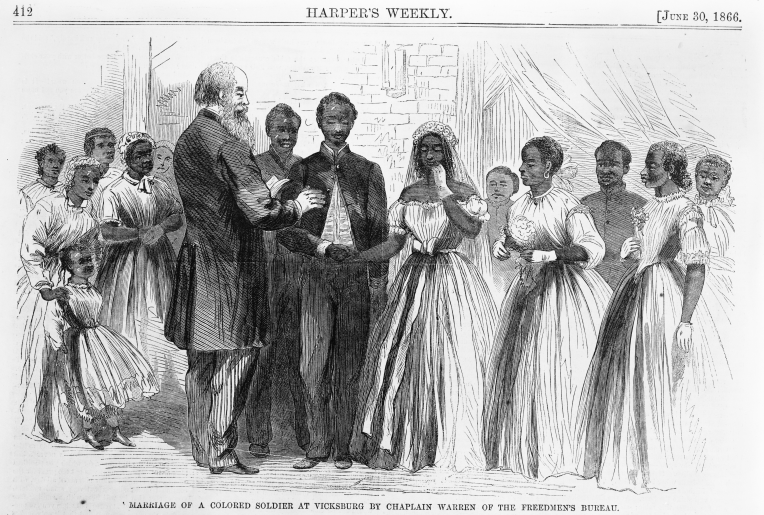|
I got a big surprise this summer when I learned that the Society of Civil War Historians had named Happy Dreams of Liberty the winner of their 2023 Tom Watson Brown Book Award. Part of the surprise came from the fact that this is an award for "the best book published on the causes, conduct, and effects, broadly defined, of the Civil War," and I hadn't really thought of my book as a Civil War story. Happy Dreams of Liberty focuses on the lives of the Townsend family under slavery, through their emancipation in 1860 (shortly before the Civil War), and in their struggle for freedom and equality across the country in the decades after. One of the Townsends, Charles Osborne, did enlist in the Union Army during the war, but he served as a clerk and quartermaster in Union-occupied Vicksburg for just a year. His experience of wartime wasn't blood and battles; it was paperwork and patrol duty. The other Townsends spent the war farming, teaching, marrying, and raising families. The war itself takes up only a few pages in the entire book. "Marriage of a Colored Soldier at Vicksburg," Harper's Weekly, 20 June 1866. Courtesy of the Library of Congress. The illustration above depicts a Freedmen's Bureau chaplain marrying an African American soldier and his bride. Processing paperwork for legal marriages -- which were denied enslaved people -- would have been one of Charles Osborne Townsend's tasks as a clerk in Vicksburg. But the Civil War did have a major effect on the Townsends' lives after 1865. Before the war, the inheritance their father had promised them in his will, a whopping $200,000 in 1850s money, was controlled almost entirely by his executor, the white Huntsville lawyer (and Confederate officer) S. D. Cabaniss. Cabaniss unilaterally decided who got how much money and at what time. He chose where they lived, went to school, and what they could buy with their money -- which, understandably, frustrated the Townsends.
Then war broke out, and the laws of the rebel Confederate government prohibited Cabaniss from sending any money to the Townsends, who were now living in the "enemy" states of Ohio and Kansas. This left the Townsends without access to their inheritance, but it also gave them freedom from Cabaniss's control for the first time. When the war ended and communication with the lawyer was restored in 1865, the Townsends made it very clear that they would no longer be treated like children or second-class citizens by their father's executor. The outcome of the Civil War and the start of Reconstruction changed the balance of power between white and Black Americans, and the Townsends knew it. "The new state of affairs gives us the power to enforce remedies," Elvira Townsend wrote Cabaniss in 1866, "and we shall do it." The war also transformed the racial hierarchy that structured life in the 19th century United States. Before the Civil War, the mere existence of slavery associated "whiteness" with freedom and power and "Blackness" with inferiority and enslavement. After all, only African Americans could be enslaved. Slavery created a clear, legal, and brutal dividing line between Black and white Americans. With the ratification of the 13th Amendment in 1865, however, that dividing line disappeared. Millions of African Americans won their freedom and recognition as citizens, and half of them (the men) won the right to vote and hold office. At the turn of the 20th century, white Americans would re-establish a rigid system of white supremacy in the United States with Jim Crow and the "one-drop rule." But in the half-century between the end of slavery and the rise of Jim Crow, racial categories and hierarchies in the United States were more fluid and flexible than they had ever been -- and the Townsends took advantage of that too. Perhaps Happy Dreams of Liberty isn't a traditional military or political history of the Civil War, but it's the story of a family whose lives, choices, and opportunities were shaped by the war and its aftermath deeply and concretely. I'm grateful to the Society of Civil War Historians for recognizing that.
0 Comments
Leave a Reply. |
Blog byAward-winning author and historian of slavery R. Isabela Morales Archives
December 2023
Categories
All
|

 RSS Feed
RSS Feed